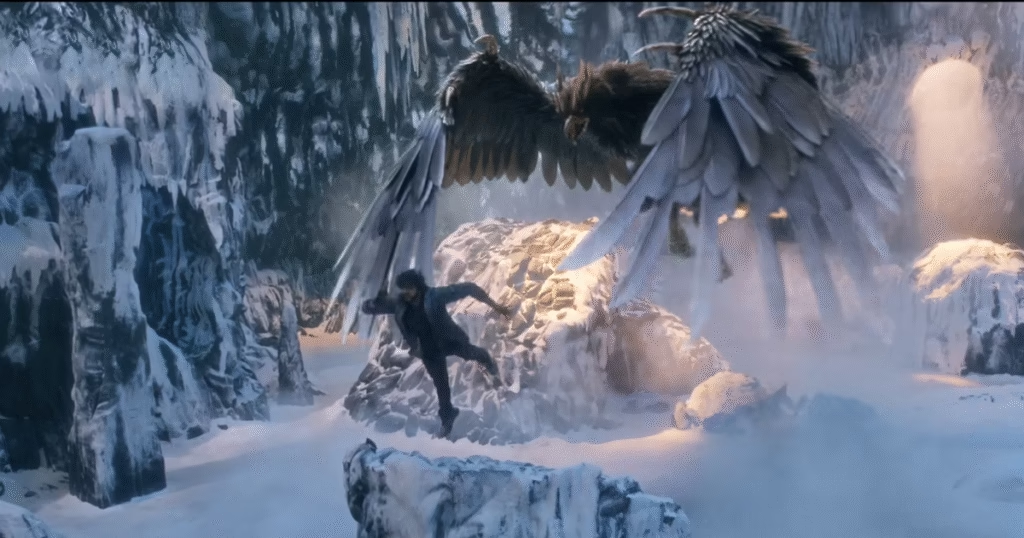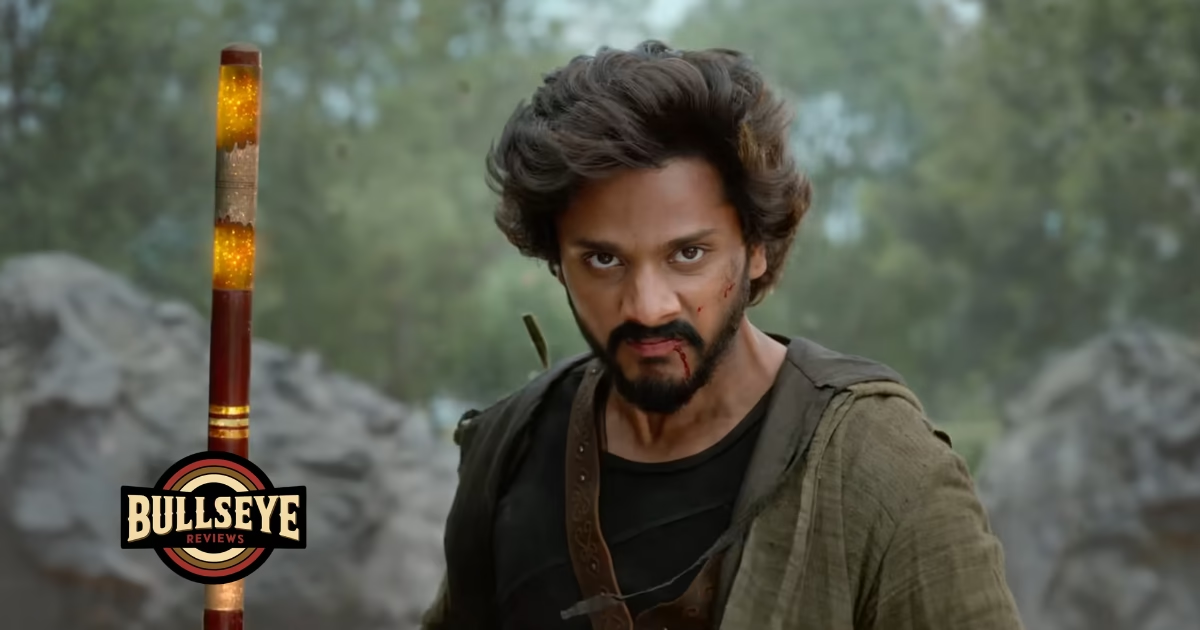Mirai, starring Teja Sajja, Manchu Manoj, and Shriya Saran, is an ambitious Telugu fantasy that fuses mythology, anime-inspired visuals, and modern superhero sensibilities. While the film dazzles with its visuals, VFX, and performances, it struggles with emotional depth and a fully engaging narrative.
A World Built on Legends
Mirai begins on a grand note, tying its story to Emperor Ashoka’s remorse after the Kalinga war and the secret guardianship of nine powerful scriptures. Centuries later, this fragile balance is threatened by Mahabir Lama, also known as the Black Sword, played with menace by Manchu Manoj. Into this struggle is pulled Vedha (Teja Sajja), a drifter from the streets who learns he is destined to wield the mystical staff, Mirai, and stop Mahabir from seizing the final granth.
The setup promises an epic clash of good versus evil, and in many ways, the film does deliver spectacle worthy of that canvas. From animated prologues to Himalayan quests, director Gattamneni mounts the story with flair, making it feel like a hybrid of myth and anime brought to life.
Strength in Scale and Performances
The visual design of Mirai is its biggest strength. The Sampati bird sequence, the train set piece, and the climactic showdown are staged with a polish that matches the ambition. Gowra Hari’s thundering background score further amplifies the drama, and the cinematography ensures nearly every frame looks cinematic.

Among the cast, Teja Sajja carries the film with charm and conviction, especially in his transition from carefree orphan to determined warrior. Manchu Manoj brings charisma and menace, making Mahabir a villain worth remembering. Shriya Saran is the surprise package, bringing quiet strength and emotional weight to her role as Ambica. Together, they elevate the film beyond its shortcomings.
Where the Magic Wanes
Despite its grand vision, Mirai often falters in its storytelling. The first half leans on familiar beats, taking its time to establish stakes that never feel urgent enough. Vedha’s initiation into his destiny is rushed, and the world-building sometimes feels more like a set than a lived-in universe.
The film also struggles with tone. Attempts at humor—particularly in certain side tracks—dilute the gravity of the story and pull the viewer out of its mythic world. By the time the climax arrives, the visual grandeur cannot fully mask the predictability of the narrative. What could have been a stirring emotional journey often feels like a sequence of well-produced highlights.
Final Take
Mirai is ambitious, stylish, and occasionally thrilling, but it doesn’t entirely succeed in marrying its spectacle with an engaging emotional core. Teja Sajja, Manchu Manoj, and Shriya Saran do their best to ground the film, and the technical team ensures the visuals are memorable. Yet the lack of narrative depth leaves it short of the truly immersive fantasy it sets out to be.
Bullseye Rating:★★★ (3/5 stars)
Mirai is currently playing in theatres.

